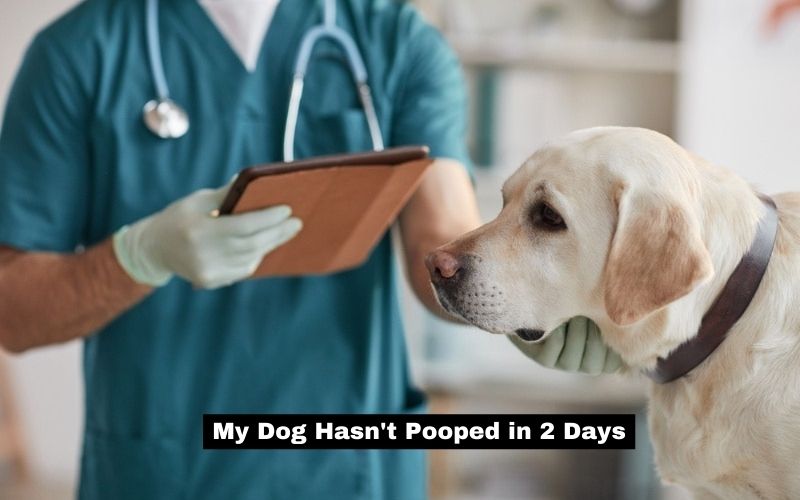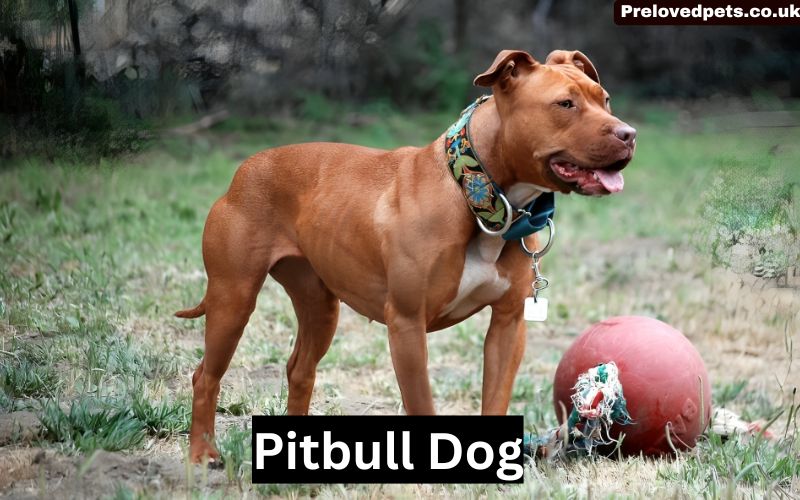When your dog hasn’t pooped in two days, it can be a cause for concern. Constipation in dogs, while not uncommon, can indicate a range of underlying issues. This comprehensive guide will explore the potential causes of constipation in dogs, signs to watch for, and effective solutions to help your furry friend get back to normal.
Understanding Canine Constipation
Constipation occurs when your dog has infrequent or difficult bowel movements. Normally, dogs should have at least one bowel movement per day. When a dog hasn’t pooped in two days, it’s important to consider the possible reasons and take appropriate action.
Causes of Constipation in Dogs
- Dietary Factors:
- Lack of Fiber: Dogs need fiber to help with digestion. A diet low in fiber can lead to constipation. Commercial dog foods usually contain the necessary fiber, but homemade diets might lack this crucial component.
- Dehydration: Adequate water intake is essential for healthy digestion. Without enough water, the stool can become hard and difficult to pass.
- Dietary Changes: Sudden changes in diet can upset your dog’s digestive system and cause constipation. Introducing new foods too quickly can disrupt their gut flora and result in hard stools.
- Medical Conditions:
- Obstructions: Foreign objects, bones, or other indigestible items can cause blockages in the intestines, leading to constipation. Ingested items like toys, stones, or even pieces of rawhide can become lodged in the digestive tract.
- Anal Gland Issues: Dogs have two anal glands that can become impacted or infected, causing discomfort and difficulty in passing stool. Impacted anal glands can swell and make defecation painful or impossible.
- Orthopedic Problems: Conditions such as arthritis or hip dysplasia can make it painful for your dog to squat and defecate. Painful joints can discourage a dog from assuming the position necessary for bowel movements.
- Neurological Disorders: Certain neurological conditions can affect the nerves that control the bowel movements. Disorders like spinal injuries or degenerative myelopathy can interfere with the normal function of the digestive system.
- Medications:
- Some medications, especially those used for pain relief or to treat allergies, can cause constipation as a side effect. Drugs like antihistamines, diuretics, and certain pain medications can slow down bowel movements.
- Lack of Exercise:
- Regular exercise helps stimulate bowel movements. Dogs that lead a sedentary lifestyle are more prone to constipation. Exercise helps maintain muscle tone in the digestive tract, promoting regular bowel movements.
- Aging:
- Older dogs are more prone to constipation due to decreased activity levels, changes in diet, and potential medical issues. Aging can also slow down the digestive process, leading to harder stools.
Recognizing the Signs of Constipation
Besides the obvious sign of not having a bowel movement in two days, there are other symptoms that may indicate your dog is constipated:
- Straining or crying out when trying to defecate
- Passing small, hard, dry stools
- Loss of appetite
- Lethargy or reduced activity
- Bloating or abdominal discomfort
- Scooting or dragging their bottom on the ground
- Frequent attempts to defecate with little or no result
Recognizing these signs early can help prevent more serious complications and discomfort for your dog.
When to See a Veterinarian
If your dog hasn’t pooped in two days and shows any of the above signs, it’s time to consult your veterinarian. While constipation can often be treated at home, it’s important to rule out serious underlying conditions. Seek immediate veterinary care if your dog:
- Shows signs of severe pain or distress
- Vomits repeatedly
- Has a swollen or hard abdomen
- Is unable to pass urine
- Displays signs of systemic illness such as fever or lethargy
These symptoms could indicate a more serious problem that requires prompt medical attention.
At-Home Remedies for Mild Constipation
If your dog is otherwise healthy and only mildly constipated, there are several at-home remedies you can try to relieve their discomfort.
- Increase Fiber Intake:
- Add fiber to your dog’s diet by incorporating canned pumpkin (not the pie filling) or a small amount of bran. These can help to soften the stool and make it easier to pass. You can also try adding cooked vegetables like green beans or sweet potatoes to their meals.
- Ensure Adequate Hydration:
- Encourage your dog to drink more water. Adding a bit of low-sodium chicken broth to their water bowl can make it more appealing. Wet dog food can also increase their fluid intake. You might also consider investing in a pet water fountain, as the moving water can attract dogs to drink more.
- Regular Exercise:
- Increase your dog’s physical activity. Regular walks and playtime can stimulate bowel movements. Try to engage your dog in activities that encourage movement, like fetch or agility exercises.
- Laxatives and Stool Softeners:
- Consult your veterinarian before giving any over-the-counter laxatives or stool softeners. They can recommend safe options and proper dosages for your dog. Products like Miralax or lactulose are commonly recommended, but dosages must be tailored to your dog’s specific needs.
- Massage and Warm Baths:
- Gently massaging your dog’s abdomen can help stimulate bowel movements. A warm bath can also relax their muscles and encourage defecation. Ensure the water is comfortably warm and keep the bath short to avoid stressing your dog.
Veterinary Treatments for Constipation
If at-home remedies do not work, your veterinarian may recommend several treatments:
- Prescription Laxatives:
- Your vet can prescribe stronger laxatives or stool softeners that are safe for dogs. These medications are usually more effective and tailored to your dog’s specific condition.
- Enemas:
- In some cases, a veterinarian may administer an enema to help clear the blockage. Do not attempt this at home without professional guidance. Enemas must be performed carefully to avoid injury or complications.
- Manual Removal:
- For severe cases, your veterinarian might need to manually remove the impacted stool. This procedure is typically performed under sedation or anesthesia to ensure your dog is comfortable.
- Hydration Therapy:
- Intravenous or subcutaneous fluids may be administered to rehydrate your dog and soften the stool. This treatment is particularly useful if your dog is dehydrated or unable to drink enough water on their own.
- Addressing Underlying Conditions:
- If a medical condition is causing the constipation, such as an obstruction or anal gland issue, appropriate treatment will be necessary. This might include surgery, medication, or other interventions depending on the underlying cause.
Preventing Constipation in Dogs
Preventing constipation is often easier than treating it. Here are some tips to keep your dog’s digestive system healthy:
- Balanced Diet:
- Ensure your dog is eating a balanced diet with adequate fiber. Consult your veterinarian to choose the right food for your dog’s specific needs. Avoid giving your dog table scraps or foods that could cause digestive upset.
- Regular Hydration:
- Always provide fresh, clean water for your dog. Monitor their water intake, especially during hot weather or after exercise. Consider offering water-rich foods, like cucumbers or watermelon, as treats.
- Consistent Exercise:
- Regular exercise is essential for overall health and proper digestion. Aim for daily walks and playtime suited to your dog’s age and breed. Engage in activities that promote physical activity, like hiking or swimming.
- Routine Veterinary Check-ups:
- Regular visits to the veterinarian can help catch potential health issues early, including those that might lead to constipation. Your vet can also provide advice on diet, exercise, and other preventive measures.
- Monitor Bowel Movements:
- Keep an eye on your dog’s bowel movements. Knowing what’s normal for your dog can help you spot issues early. If you notice changes in frequency, consistency, or appearance, consult your veterinarian.
- Safe Environment:
- Prevent your dog from eating foreign objects or bones that could cause obstructions. Keep an eye on their chewing habits and provide safe, appropriate toys. Supervise your dog during playtime to ensure they don’t swallow anything harmful.
- Proper Grooming:
- For long-haired dogs, regular grooming can help prevent mats and tangles that could interfere with defecation. Keep the area around their anus clean and free of hair that might trap feces.
- Supplementation:
- Some dogs might benefit from dietary supplements that promote digestive health. Probiotics, prebiotics, and digestive enzymes can help maintain a healthy gut flora and improve bowel function.
- Stress Management:
- Stress can affect your dog’s digestive system. Ensure a calm and stable environment, and try to minimize changes that could stress your dog. If your dog is prone to anxiety, consider calming aids or consult your veterinarian for advice.
See Also: When Do Dogs Stop Growing
Conclusion
Constipation in dogs, while common, should not be ignored. If your dog hasn’t pooped in two days, it’s important to assess their diet, hydration, and activity levels. At-home remedies can often help, but persistent or severe constipation requires veterinary attention. By understanding the causes, recognizing the signs, and taking proactive measures, you can ensure your dog’s digestive health remains in top condition. Remember, when in doubt, always consult your veterinarian to ensure the well-being of your beloved pet.
In summary, maintaining a balanced diet, ensuring adequate hydration, providing regular exercise, and keeping up with routine veterinary care are key to preventing constipation in your dog. By being vigilant and proactive, you can help your dog lead a healthy, comfortable life free from digestive issues.




